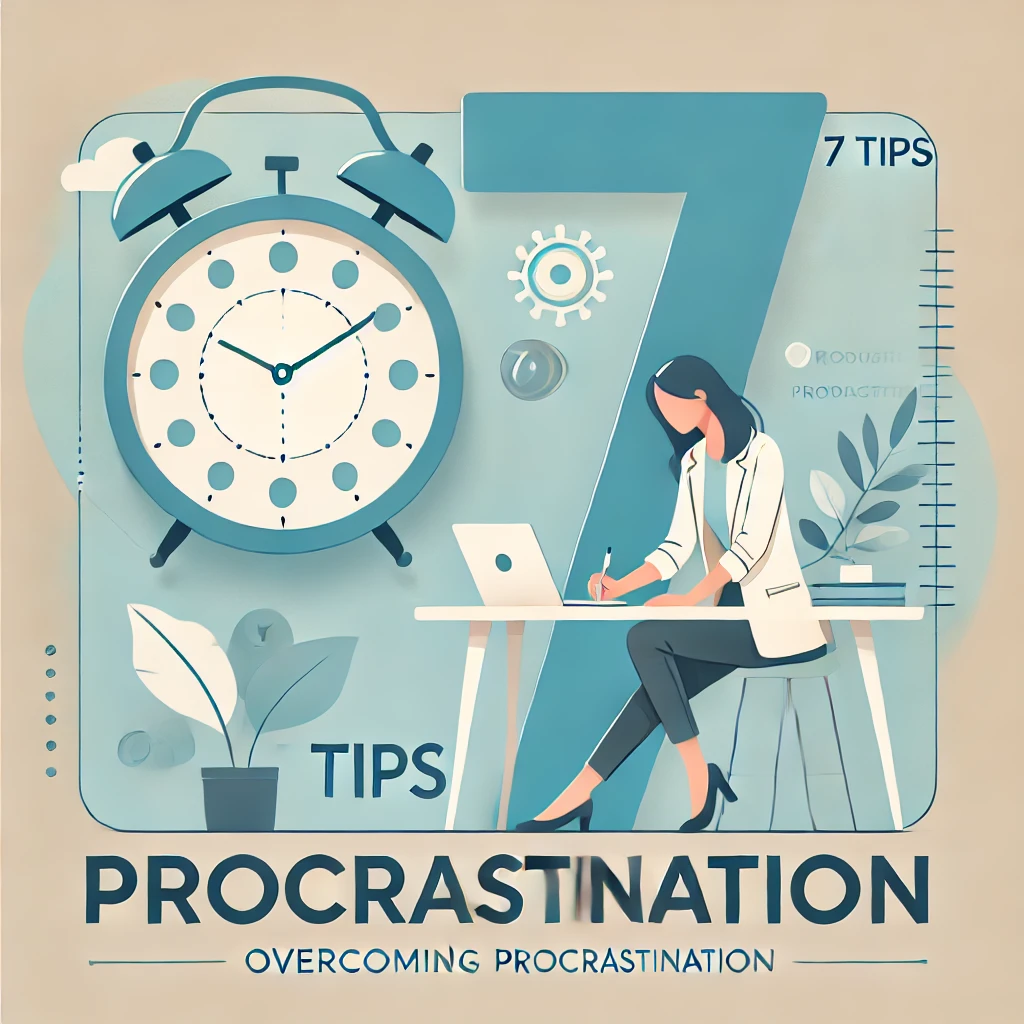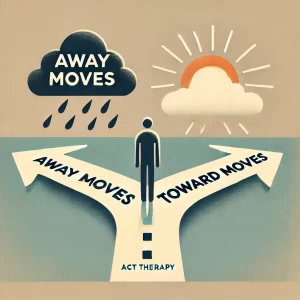
Why Procrastination Happens and How to Overcome It
Procrastination is a challenge that leaves many feeling stuck, overwhelmed, and frustrated. Whether it’s avoiding a daunting work project, putting off a phone call, or delaying daily chores, procrastination can feel like an uphill battle.
But what if you could change how you approach these tasks? With insights from Acceptance and Commitment Therapy (ACT), you can overcome avoidance and take actionable steps to regain control of your time and energy.
Why Do We Procrastinate?
Procrastination isn’t about laziness. Often, it’s rooted in deeper emotional or mental hurdles, such as:
- Fear of failure: Doubts about completing a task well.
- Overwhelm: Feeling like the task is too big or unmanageable.
- Avoidance of discomfort: Avoiding unpleasant emotions triggered by the task.
Understanding these drivers is the first step to overcoming procrastination.
7 ACT-Based Tips to Overcome Procrastination
1. Break Tasks into Bite-Sized Chunks
Large tasks can feel overwhelming. Break them down into smaller, manageable steps.
- Example: Instead of “Write the report,” try “Draft the introduction” or “List key points for the outline.”
Starting small reduces resistance, builds momentum, and makes the task feel achievable.
2. Identify the Barriers
ACT highlights common barriers that prevent action:
- Being hooked by unhelpful thoughts (e.g., “I’ll never finish this”).
- Avoiding discomfort (e.g., boredom, fear).
- Feeling disconnected from values (e.g., forgetting why the task matters).
- Pursuing unclear or unrealistic goals.
How to Overcome These Barriers:
- Practice mindfulness: Acknowledge unhelpful thoughts without letting them control you.
- Embrace discomfort: Remind yourself that discomfort is temporary.
- Reconnect with your values: Reflect on how completing the task aligns with what matters to you.
3. Use the Choice Point Model
Imagine every task as a fork in the road:
- Away moves lead to avoidance and frustration.
- Toward moves align with your values and help you progress toward your goals.
Ask yourself, “Which choice will bring me closer to the person I want to be?” Then take a value-driven action, even if it feels uncomfortable.
4. Start with Just 5 Minutes
When a task feels too daunting, commit to working on it for just five minutes. This small action reduces inertia and often leads to continued effort.
Pro Tip: Use a timer to create a clear starting and stopping point, making it easier to get started.
5. Create Accountability
External accountability can be a powerful motivator. Share your goals with a friend, colleague, or coach.
- Example: Tell someone, “I’ll send you the first draft of my report by 3 PM.”
Knowing someone is counting on you increases follow-through.
6. Practice Self-Compassion
Self-criticism often keeps people stuck. Instead of beating yourself up for procrastinating, be kind to yourself.
- Reframe your mindset:
- Instead of: “I’m so lazy for putting this off.”
- Try: “I felt overwhelmed, but I’m ready to take a small step forward.”
Self-compassion fosters resilience and helps you re-engage with tasks.
7. Celebrate Small Wins
Positive reinforcement is key to building habits that stick. Reward yourself for progress, no matter how small.
- Example: Finished outlining a project? Take a short walk or treat yourself to a favorite snack.
Celebrating small wins creates a sense of accomplishment and makes it easier to tackle future tasks.
FAQs About Procrastination
1. Why do I procrastinate even when I want to stop?
Procrastination is often tied to fear, overwhelm, or discomfort. Understanding your triggers and practicing mindfulness can help you address the root causes.
2. Can procrastination ever be a good thing?
Sometimes, taking a break can provide clarity or improve results. However, chronic procrastination often leads to stress and missed opportunities.
3. How can I stop procrastinating on big tasks?
Break large tasks into smaller steps, focus on the next actionable item, and use the 5-minute rule to get started.
4. Does ACT really help with procrastination?
Yes! ACT focuses on psychological flexibility, helping you take values-driven actions and unhook from unhelpful thoughts.
5. What’s the best way to hold myself accountable?
Share your goals with someone you trust or set clear deadlines with reminders. External accountability often increases follow-through.
6. How can I be kinder to myself when I procrastinate?
Recognize that procrastination is a normal behavior. Shift your focus to what you can do now, and celebrate even small progress.
For a deeper dive into how procrastination affects mental health and strategies to overcome it, check out this insightful guide from Psychology Today.
Take Action Today
Procrastination doesn’t have to hold you back. By using these ACT-based strategies, you can face tasks with clarity and confidence. Remember, the key is to start small and build momentum.
Every step forward counts—so why not take that first step today?
Reach out to start
your healing journey today.
